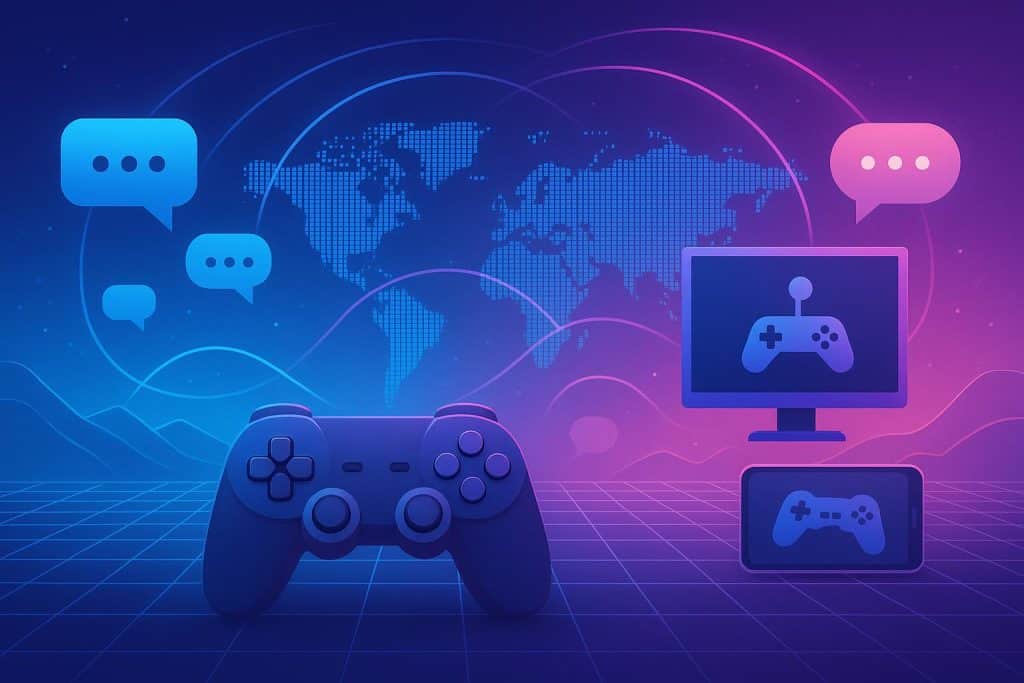Introduction
Online slot mahjong has moved far beyond entertainment. It’s a digital frontier — a space where creativity, technology, and human connection collide. What began as simple multiplayer matches has grown into a vibrant, global ecosystem that influences communication, education, business, and even mental health. In 2025, online gaming isn’t just about playing — it’s about belonging.
The Transformation of Digital Play
The history of online gaming mirrors the evolution of technology itself. From early text-based games like MUD (Multi-User Dungeon) to today’s 4K, AI-driven multiplayer worlds, gaming has always been at the edge of innovation.
The early 2000s brought broadband, online lobbies, and voice chat. The 2010s saw esports and live streaming explode. And now, in the 2020s, technologies like cloud computing, 5G, and AI have made global, lag-free play accessible to anyone with a smartphone.
A World Connected Through Games
Online gaming has created a shared digital culture that transcends geography and language.
Millions of players log in daily, forming communities that rival real-world social networks. Whether it’s competing in Valorant, building in Minecraft, or exploring in Genshin Impact, gamers share experiences that bring people together more powerfully than many traditional media.
Friendships, collaborations, and even relationships often begin inside virtual arenas — proving that digital worlds can foster genuine human connection.
The Role of Online Gaming in Modern Communication
Gaming has redefined how people communicate. Instead of phone calls or messages, people now hang out in voice chats while exploring virtual worlds together.
Platforms like Discord and Twitch act as virtual town squares where millions gather to talk, share, and connect. In many ways, gaming communities have become modern social circles — spaces of laughter, teamwork, and shared emotion.
The Emergence of Esports as a Global Sport
Esports has turned competitive gaming into a worldwide phenomenon.
Tournaments such as The International (Dota 2), Fortnite World Cup, and League of Legends Worlds attract viewership comparable to major sporting events.
Professional gamers, once underestimated, are now household names with sponsorships, salaries, and international fanbases.
Esports has not only legitimized gaming as a career but also inspired millions to dream of turning passion into profession.
Gaming and the Creator Economy
Online gaming sits at the center of the booming creator economy. Streamers, YouTubers, and influencers have built empires around their gaming content.
From walkthroughs and tutorials to live commentary and humor, gaming content now dominates platforms like YouTube, Kick, and Twitch.
This shift empowers individuals to monetize creativity, giving rise to independent careers once unimaginable.
The Power of Mobile and Cloud Gaming
The mobile revolution has democratized gaming. High-quality experiences that once required expensive PCs are now available on devices that fit in your hand.
Cloud services like Xbox Cloud Gaming and GeForce NOW further remove the need for powerful hardware — streaming games directly from servers.
This combination of mobility and accessibility has made gaming truly universal — across age groups, income levels, and countries.
Educational and Cognitive Benefits of Gaming
Beyond entertainment, online slot bet 200 can enhance learning and brain function.
Strategy and simulation games encourage problem-solving, memory, and decision-making under pressure.
Collaborative play promotes teamwork, communication, and leadership.
Educational institutions increasingly use game-based learning to make complex concepts engaging — turning students from passive listeners into active participants.
The Role of AI and Technology in Online Gaming
Artificial Intelligence is revolutionizing gaming from the inside out.
AI-driven NPCs offer smarter, more adaptive gameplay, while machine learning helps developers personalize experiences.
AI also powers content moderation, cheat detection, and dynamic storylines that evolve with player choices.
Combined with VR (Virtual Reality) and AR (Augmented Reality), the future of online gaming promises hyper-realistic experiences that blur the line between real and virtual.
Economic Impact and Opportunities
The online gaming industry now fuels a digital economy worth hundreds of billions.
From in-game purchases and digital collectibles to esports sponsorships and live events, gaming generates jobs across design, marketing, data analytics, and media.
Blockchain and NFTs are introducing new models of ownership — where players can trade, sell, or even create valuable in-game assets.
The Psychological Side of Online Gaming
Gaming offers emotional and psychological benefits when balanced correctly.
It reduces stress, boosts dopamine levels, and provides a sense of achievement through progress and competition.
For many, games serve as emotional outlets — offering relaxation, escape, and even therapy.
However, moderation remains key. Healthy gaming habits and time management ensure that play enhances life rather than overtaking it.
Challenges and Responsibilities
Despite its many positives, online gaming faces ongoing challenges.
Issues like cyberbullying, addiction, and online toxicity require active regulation.
Developers now employ AI moderation systems, parental controls, and educational campaigns to ensure responsible play.
The industry’s next big goal is to balance freedom and safety — protecting users while preserving creativity.
The Metaverse: Gaming’s Next Evolution
The metaverse represents the next major chapter of online gaming.
It’s a universe where games, social life, and commerce merge into one digital space. Players can own virtual property, attend concerts, and work collaboratively — all inside interconnected virtual worlds.
As companies like Epic Games and Meta invest billions into metaverse development, online gaming will serve as the foundation for this digital evolution.
The Future of Online Gaming
The future of online gaming lies in personalization, inclusivity, and cross-platform innovation.
With 5G, AI, and VR leading the charge, games will become more immersive, accessible, and interactive than ever before.
We’re moving toward a world where your gaming identity transcends platforms — a persistent avatar that lives across multiple universes, experiences, and communities.
Conclusion
Online gaming is more than a trend — it’s a defining aspect of human progress in the digital age. It connects people, builds economies, and drives technological innovation.
As the lines between gaming and real life blur, it’s clear that play has become one of humanity’s most powerful tools for learning, expression, and unity.
The world of online gaming isn’t just about pixels and screens — it’s about people, passion, and possibilities without limits.
